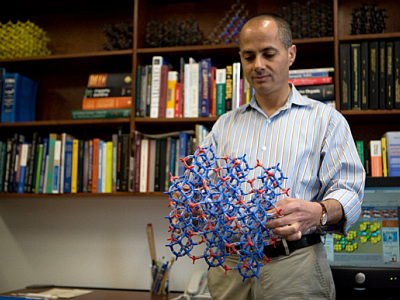Human fingertip turned out to be sensitive to felt nano-sized uplift

ByGemma Bou
Even if you touch objects with your fingers with your eyes closed, you can distinguish a lot of information, such as irregularities, hardness / softness, material, by tactile sensation alone. A study on such a tactile sense is presented by Sweden · StockholmKTH Royal Institute of Technology (KTH)He is a professor ofMark RutlandIt was revealed by the guys that human fingers can sense even the unevenness of 13 nanometers.
Feeling small: Fingers can detect nano-scale wrinkles even on a seemingly smooth surface
http://www.sciencedaily.com/releases/2013/09/130916110853.htm

On September 12, 2013, as a co-researcher with KTH from Professor Rutland of Surface Chemistry and Mr. Lisa Skedung, a doctoral student studentUniversity of StockholmPsychologistBirgitta BerglundMr. Martin Arvidsson, a doctoral student team, said the team "Human tactile limitAnnounced a paper that studied. According to the paper, the human finger can distinguish between a surface with small protuberance of 13 nanometers and an empty surface.

ByTsahi Levent-Levi
To verify the limits of tactile sense, pay attention to how tactile sensation of microstructure reacts to "surface friction" and "width (size) of protuberance".National Institute of Standards and Technology (NIST)Cooperate to develop surface samples carved from 300 nanometers to 90 nanometers in width and two surface samples carved with bumps with heights of 7 nanometers to 4.5 nanometers as chemically identical objects I made 16 cards.
Next, a method was devised in which experimental participants randomly distributed two pairs of surface samples, traced the sample with the index finger, and asked the direction in which the raised elevation vertically faced is answered It was. At first glance, participants who touched a surface sample not engraved could identify up to a sample with a width of 760 nanometers and a sample with a height of 13 nanometers.

Rutland states that teaming up in two different areas, interfacial chemistry and psychology, has also led to success, "This discovery can reveal the" unknown area "of human tactility, We can lead the progress of touch screen such as products for people and smart phones. "
Related Posts:
in Science, Posted by darkhorse_log






